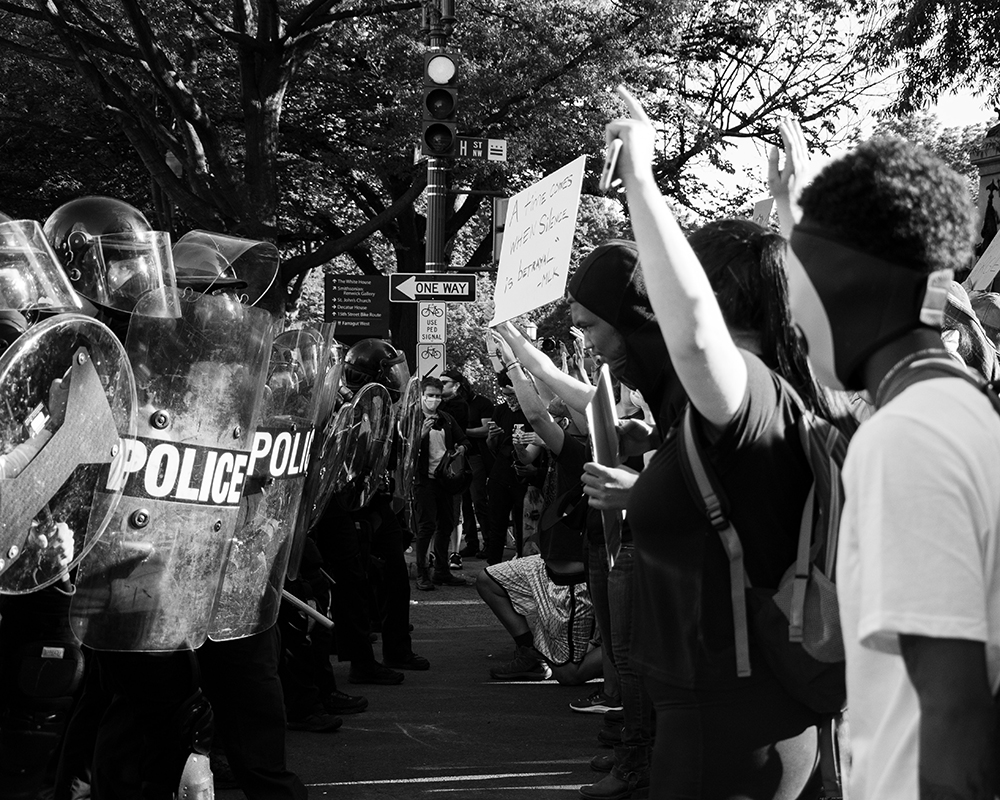
The use of force by police officers is typically governed by a combination of laws, policies, and guidelines that vary from one jurisdiction to another. However, there are some general principles that apply to the context of the law in the United States.
- Self-Defense and Defense of Others: Police officers are generally allowed to use force, including lethal force, when they reasonably believe that their life or the life of another person is in imminent danger. This is typically referred to as the “use of force in self-defense” or “defense of others.”
- Arrest and Detention: Police officers may use force to effect an arrest or to detain a suspect when the person is resisting arrest, attempting to flee, or posing a threat to themselves or others. The amount of force used should be proportional to the threat presented.
- Prevention of Escapes: Police may use force, including deadly force, in certain circumstances to prevent a suspect from escaping custody if the suspect poses a significant risk to the safety of the public or the officers.
- Use of Non-Lethal Force: In many situations, police are trained to use non-lethal force options, such as tasers, pepper spray, batons, or physical restraint techniques, to subdue individuals who are non-compliant or pose a threat without resorting to deadly force.
- Warrant Execution: Police officers may use force when executing a search warrant or arrest warrant, but such force must be reasonable and in accordance with the law.
- Use of Deadly Force: The use of deadly force is typically subject to the highest level of scrutiny. In many jurisdictions, it is allowed only when there is an immediate threat of death or serious bodily harm to the officer or others. The principle of “reasonable belief” often applies, meaning that the officer must reasonably believe that such force is necessary to protect life.
What about in the State of Texas?
The use of force by police officers in Texas is governed by state law, as well as federal law and constitutional principles. The specific legal standards and policies regarding the use of force can vary among different law enforcement agencies in Texas, but they generally adhere to similar principles as mentioned in the previous response. Here are some key points related to the use of force by police officers in Texas:
- Texas Penal Code: The Texas Penal Code includes provisions related to the use of force by law enforcement officers. For example, it addresses self-defense, the use of force to effect an arrest, and the use of deadly force. It is important to note that Texas law allows the use of deadly force in self-defense and in defense of others in certain circumstances.
- Texas Code of Criminal Procedure: The Texas Code of Criminal Procedure provides guidelines for the use of force during arrests and detentions. It outlines the circumstances under which force may be used, such as when an individual is resisting arrest or attempting to escape lawful custody.
- Texas Commission on Law Enforcement (TCOLE): TCOLE sets standards for law enforcement training in Texas. Police officers in Texas are typically trained in the use of force according to TCOLE guidelines, which emphasize the principles of proportionality and reasonableness.
- Deadly Force: Texas law, like many states, allows for the use of deadly force by a police officer when the officer reasonably believes it is immediately necessary to protect themselves or others from an individual’s use or attempted use of deadly force.
- Standards and Policies: Individual police departments and agencies in Texas may have their own policies and procedures governing the use of force. These policies often align with state law but may also include specific guidelines for the use of less-lethal force options, de-escalation techniques, and reporting requirements.
- Oversight and Accountability: There are mechanisms in place for oversight and accountability for law enforcement officers’ use of force in Texas. This includes internal investigations, external review boards, and civilian oversight agencies, depending on the jurisdiction.
It’s important to note that legal standards and policies can change over time, and they can vary among different law enforcement agencies within the state. If you have specific questions or concerns about the use of force by police officers in Texas, it is advisable to consult the relevant statutes, regulations, and policies applicable to your area, or send us a message and we can answer any questions you may have.
Need Legal Assistance?
If you or someone you know has been a victim of police brutality in Texas, we at Elmazi Law are here to help you. Contact us today for a free consultation. Send us a message from the form below to get started:




